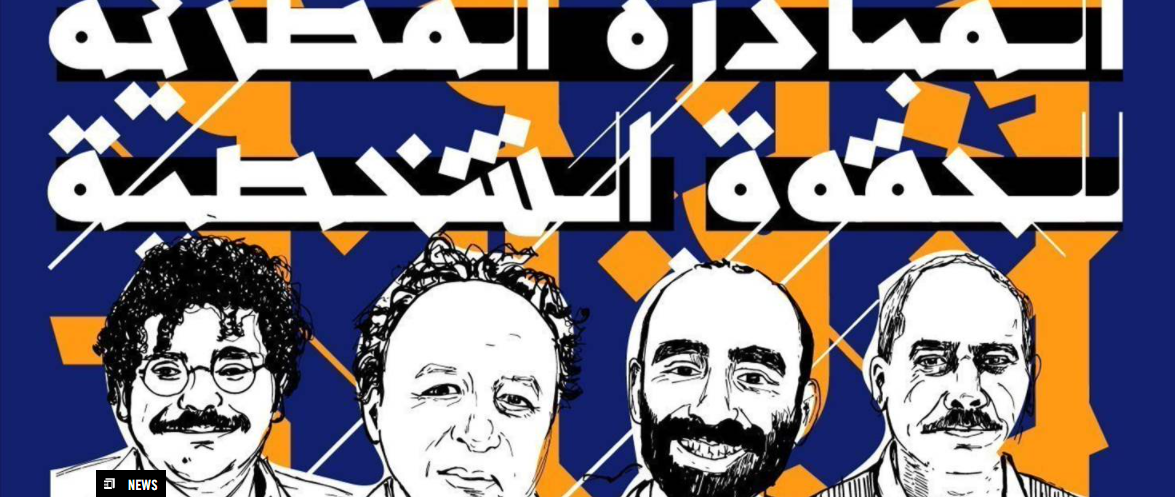Today’s court decision to freeze the assets of three senior directors from the Egyptian Initiative for Personal Rights (EIPR) demonstrates the urgent need for the international community to sustain pressure to halt the existential threat to the Egyptian human rights movement, said Amnesty International today. The development comes ahead of Egyptian President Abdel Fattah al-Sisi’s visit to Paris tomorrow to meet French President Emmanuel Macron.
Today, an Egyptian court ruled to uphold the Public Prosecutor’s order to freeze the assets of the three EIPR directors Mohamed Basheer, Karim Ennarah and Gasser Abdel Razek – who were released from detention on 3 December in the wake of significant national and international pressure – pending investigations. This latest blow to EIPR leaves no doubt that the human rights movement in Egypt remains at critical risk amid ongoing arbitrary arrests, criminal investigations, asset freezes and travel bans against staff at civil society organizations.
“Though they are now free, these human rights workers should not have spent a single day behind bars, and their release will bring great relief to their families and to Egypt’s embattled human rights community. However, this is a bittersweet victory which highlights the ongoing unjust detention of many other human rights defenders in Egypt,” said Philip Luther, Amnesty International’s Middle East and North Africa Research and Advocacy Director.
“Freezing the personal assets of three EIPR directors on the heels of the unprecedented assault on the organization demonstrates the authorities’ intent to eradicate the Egyptian human rights movement. Amid ongoing arbitrary arrests, criminal investigations, asset freezes and travel bans against tens of human rights defenders, members of the international community must ensure sustained coordinated and public pressure on the Egyptian authorities to show their genuine commitment to the survival of the human rights movement in Egypt.”
Amidst the detention of other human rights defenders including EIPR’s gender researcher Patrick George Zaki, the Egyptian authorities continue to arbitrarily detain thousands, including prisoners of conscience, execute dozens after unfair trials, and commit widespread torture and enforced disappearances with absolute impunity.
During the sole substantive hearing into the EIPR directors’ asset freeze case held on 1 December, the judge in a terrorism circuit of a criminal court in Cairo did not allow lawyers to present their defence, examine case files including the basis of the Public Prosecutor’s decision to order the asset freeze, or speak to their clients in private, in serious violation to their right to a fair trial.
Egypt’s President to visit France as human rights movement in crisis
Amnesty International is calling on President Macron to act on his declared commitment to promote human rights in Egypt, and press President al-Sisi for the release of arbitrarily detained human rights defenders and the protection of the human rights movement.
In Egypt, at least 31 leaders of civil society organizations are subject to travel bans, while 10, in addition to the three recently released senior EIPR directors, are subject to asset freezes, including EIPR’s founder Hossam Bahgat; Mozn Hassan from Nazra for Feminist Studies; Mohamed Zaree from the Cairo Institute for Human Rights Studies; Azza Soliman, director of the Center for Egyptian Women’s Legal Assistance; Gamal Eid, director of the Arab Network for Human Rights Information; and Aida Seif el-Dawla from Nadeem Center for Rehabilitation of Victims of Violence and Torture. All these human rights defenders are facing a criminal investigation known as “Case 173” or the “foreign funding case” into their legitimate work and could be sentenced to long prison terms.
In 2020, judges in terrorism circuits of criminal courts have added human rights lawyers Mohamed el-Baqer and Zyad el-Eleimy; the Egypt coordinator of the Boycott, Divest and Sanctions (BDS) movement Ramy Shaath; and human rights activist Alaa Abdelfattah to “terrorists lists”, banning them from travel and freezing their assets for five years. All four remain arbitrarily detained over unfounded terrorism charges.
“As part of a broader response to pressure the Egyptian authorities to halt their assault of the human rights movement, the international community must, through the Human Rights Council, establish a monitoring and reporting mechanism on the situation of human rights in Egypt,” said Philip Luther.
Background
Between 15 and 19 November, the Egyptian authorities arrested EIPR staff members following a meeting with western diplomats. For years the international community has largely been looking the other way as the Egyptian authorities abused counter-terrorism measures to justify their arrest of tens of human rights defenders over unfounded terrorism related charges. Among the human rights defenders arrested on spurious terrorism-related charges are the director of Adalah Center for Rights and Freedoms Mohamed al-Baqer; journalist and human rights defender Esraa Abdelfatah; human rights lawyer Mahienour el-Masry; researcher Ibrahim Ezz el-Din and lawyer Haytham Mohamdeen from the Egyptian Commission for Rights and Freedoms; lawyer and founder of the families of the disappeared coalition, Ibrahim Metawly; and lawyer Hoda Abdelmoniem.
Earlier this year, a judge in a terrorism circuit sentenced veteran human rights defender Bahey el-Din Hassan to 15 years in prison in his absence for fabricated charges related to “insulting the judiciary” and “disseminating false news” over his tweets about human rights.
Today, EIPR researcher Patrick George Zaki and his lawyer appeared in front of a court reviewing his pre-trial detention pending investigations into unfounded terrorism-related charges since February 2020. The court’s decision has yet to be communicated.






















